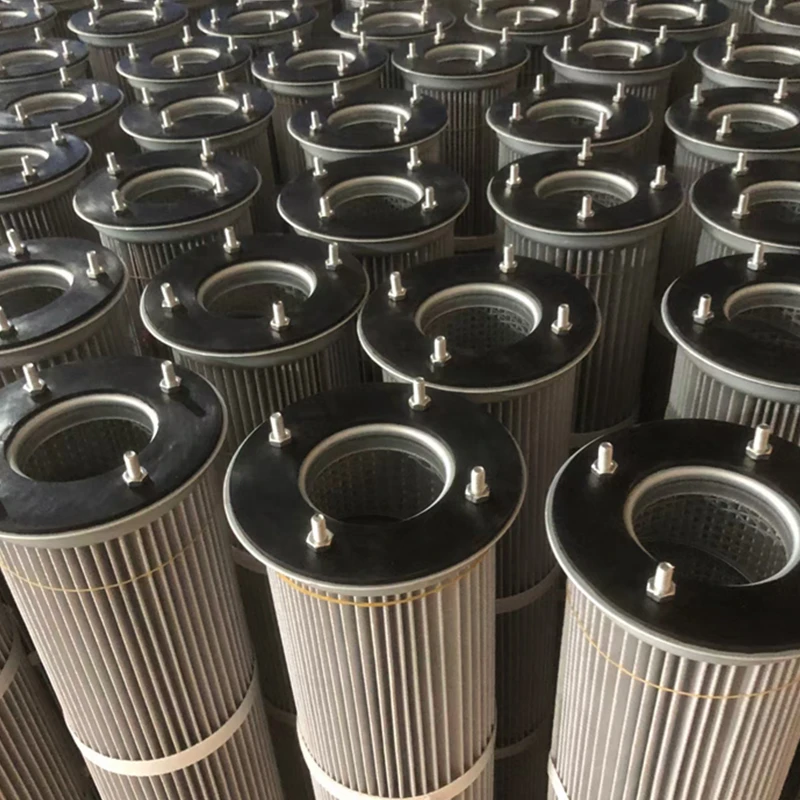 Tel:
+8615930870079
Tel:
+8615930870079
gru . 25, 2024 06:43 Back to list
turbine air intake filters
The Importance of Turbine Air Intake Filters
Turbine air intake filters play a crucial role in enhancing the performance and longevity of gas turbines. As one of the primary components in the air intake system, these filters ensure that only clean air enters the combustion chamber, protecting the turbine from harmful particulates which can cause significant damage over time. This article explores the importance of turbine air intake filters, their types, operational efficiency, and maintenance practices.
Role of Turbine Air Intake Filters
The primary function of air intake filters is to trap dust, dirt, oil, and other contaminants present in ambient air. Gas turbines operate under extreme conditions, making the quality of air intake critical. Contaminants can lead to several issues such as blade erosion, reduced efficiency, and unplanned outages. By filtering out these particles, the turbine can maintain its designed performance metrics and operational reliability.
Types of Turbine Air Intake Filters
There are several types of air filters utilized in gas turbine applications, including
1. Panel Filters These are flat filters which are easy to install and replace. They are commonly used in smaller gas turbine systems where space is limited.
2. Bag Filters Utilizing a series of fabric bags, these filters have a larger surface area, making them effective in capturing finer particles. Bag filters are suitable for industrial applications with high particulate concentrations.
3. Cyclone Separators These filters utilize centrifugal force to separate larger particles from the air stream before reaching the main filtration system. They serve as a pre-filter, thus extending the life of the primary filter.
turbine air intake filters

Each filter type has its pros and cons, and choosing the right one is essential for optimizing turbine performance while minimizing operational costs.
Operational Efficiency
The efficiency of turbine air intake filters directly impacts the overall performance of the gas turbine. Clogged or dirty filters can restrict airflow, leading to inefficient combustion, increased fuel consumption, and a potential drop in power output. Regular monitoring and assessment of the filter's condition are critical. Many modern systems are equipped with differential pressure gauges that aid operators in determining when a filter replacement is necessary.
Additionally, advancements in filter technology have led to the development of synthetic media that enhance dust-holding capacities while allowing higher airflow rates. The role of these advanced materials in improving energy efficiency and reducing maintenance downtime cannot be overstated.
Maintenance Practices
Proper maintenance of turbine air intake filters is vital for ensuring their effectiveness and prolonging the life of the gas turbine. Here are some best practices
1. Regular Inspection Frequent checks can help detect filter degradation early. Operators should follow a maintenance schedule that aligns with manufacturer recommendations and operational conditions.
2. Cleaning Processes In some cases, filters can be cleaned and reused, depending on the type and level of contamination. Techniques like compressed air blowing, washing, or vacuuming can be employed, but care must be taken to avoid damaging the filter.
3. Timely Replacement Filters should be replaced promptly when they become ineffective. Maintaining an inventory of replacement filters ensures that the turbine can run optimally without prolonged downtime.
In conclusion, turbine air intake filters are essential for maintaining the health and efficiency of gas turbines. By understanding their importance, types, and maintenance requirements, operators can achieve optimum performance and minimize operational challenges. Investing in high-quality filters along with an effective maintenance regime is crucial in safeguarding these powerful machines from the wear and tear caused by airborne contaminants.
-
Nano Fiber Technology: Revolutionizing Cartridge Dust Collector FiltersNewsAug.06,2025
-
How Activated Carbon Air Cartridges Eliminate OdorsNewsAug.06,2025
-
Dust Filter Cartridge Handling Fine Particulate MatterNewsAug.06,2025
-
Cartridge Dust Collector Filter for Welding Fume ExtractionNewsAug.06,2025
-
Activated Carbon Filter Cartridge Effectiveness Against VOCsNewsAug.06,2025
-
Activated Carbon Air Filter Cartridge Benefits ExplainedNewsAug.06,2025

 Email:
Email:





